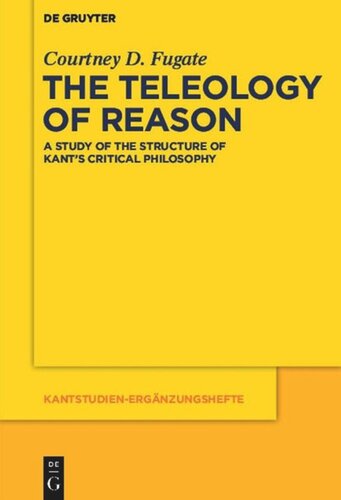

Most ebook files are in PDF format, so you can easily read them using various software such as Foxit Reader or directly on the Google Chrome browser.
Some ebook files are released by publishers in other formats such as .awz, .mobi, .epub, .fb2, etc. You may need to install specific software to read these formats on mobile/PC, such as Calibre.
Please read the tutorial at this link: https://ebookbell.com/faq
We offer FREE conversion to the popular formats you request; however, this may take some time. Therefore, right after payment, please email us, and we will try to provide the service as quickly as possible.
For some exceptional file formats or broken links (if any), please refrain from opening any disputes. Instead, email us first, and we will try to assist within a maximum of 6 hours.
EbookBell Team

4.0
96 reviewsThis work argues that teleological motives lie at the heart of Kant’s critical philosophy and that a precise analysis of teleological structures can both illuminate the basic strategy of its fundamental arguments and provide a key to understanding its unity. It thus aims, through an examination of each of Kant’s major writings, to provide a detailed interpretation of his claim that philosophy in the true sense must consist of a teleologia rationis humanae.
The author argues that Kant’s critical philosophy forged a new link between traditional teleological concepts and the basic structure of rationality, one that would later inform the dynamic conception of reason at the heart of German Idealism. The process by which this was accomplished began with Kant’s development of a uniquely teleological conception of systematic unity already in the precritical period. The individual chapters of this work attempt to show how Kant adapted and refined this conception of systematic unity so that it came to form the structural basis for the critical philosophy.